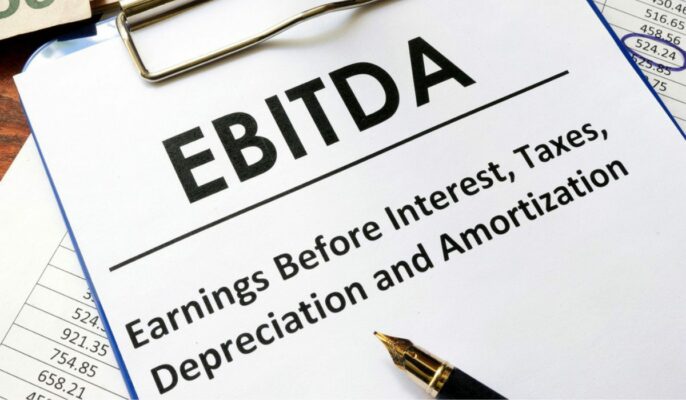What is EBITDA?
EBITDA is the abbreviation for ‘earnings before interest, taxes, depreciation and amortization’. EBITDA is an important financial indicator, measuring the success of a business. As the name suggests, the EBITDA of a business is the earnings that are generated before certain deductions and a consistent EBITDA helps in accurately assessing a company’s growth prospects. EBITDA can be used to compare businesses within an industry. EBIDTA is widely used by present and potential investors to evaluate the strength of a business and to envisage its long-term growth. Note that unlike other financial statements, a company is not legally bound to disclose its EBITDA. However, EBITDA can be computed from a company’s published financial statements.
| EBITDA full form | Earnings before interest, taxes, depreciation and amortization |
| EBITDA formula | EBIDTA = Operating Income + Depreciation + Amortization |
| EBIDTA = Net Income + Interest + Tax + Depreciation + Amortization |
See also: All about Indian accounting standards
EBITDA: Different elements
Let us understand the term EBITDA. It is made of:
- Earnings: This indicates the monetary strength of a company and can be ascertained by deducting the operating expenses from the total revenue.
- Interest: This indicates the debt involved in the company’s operations that attracts interest.
- Tax: This is the tax component that is part of the company’s earnings.
- Depreciation: This is the decrease in the value of tangible assets with time.
- Amortisation: This is related to the costs linked with the expiration of intangible assets.
See also: Cost accounting meaning
EBITDA: Formula
You can calculate the EBITDA using either the operating income or the net income. Below are the formulae:
-
Using operating income:
Operating Income* + Depreciation + Amortization = EBIDTA
*The company’s profit realised from its operations
-
Using net income:
Net Income + Interest + Tax + Depreciation + Amortization = EBIDTA
With this formula one can find the operating income.
EBIDTA: Benefits
A positive or a negative EBIDTA may or may not indicate profit or loss as this is determined by factors that have been included to calculate the EBITDA. However, it helps investors as it depicts the growth potential of the company and its performance in the sector and among its competitors.
See also: What are the golden rules of accounting?
EBIDTA: Restrictions
EBIDTA does not fall under the generally-accepted accounting principles (GAAP) used as a measure to gauge the financial performance of a company. This is because different companies use different factors to calculate the EBIDTA. Thus, EBIDTA cannot be fully relied upon and may be deceptive in some cases. EBIDTA also does not fall under GAAP as a measure of financial performance because its calculation can vary from company to company depending on the factors used. Some companies may use this as a loophole to overstate EBIDTA and cover up the problems in their financial statements.
